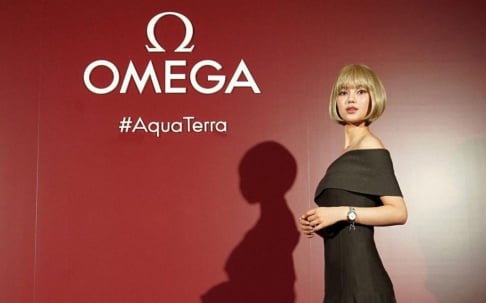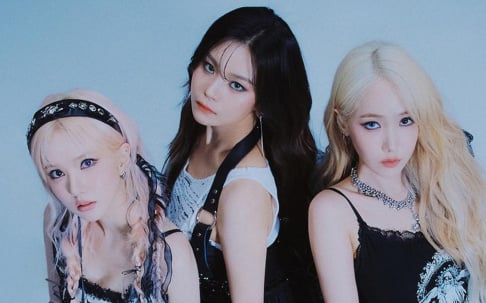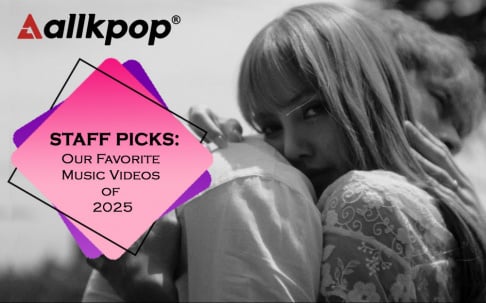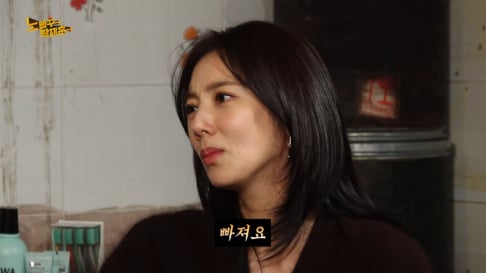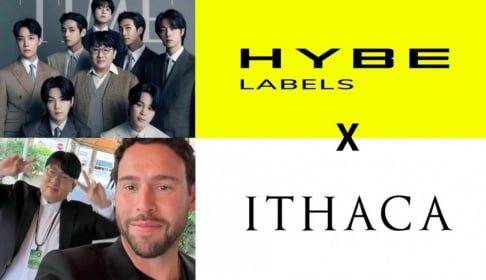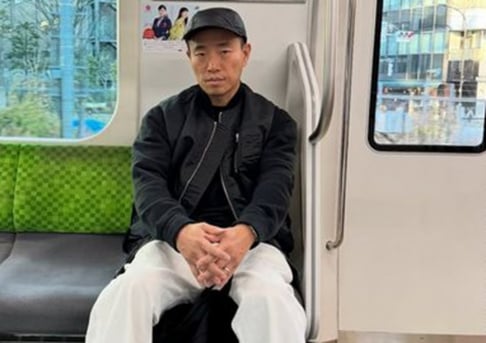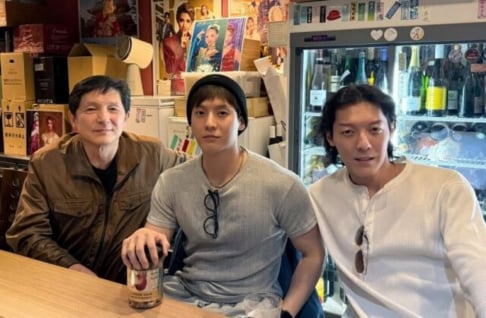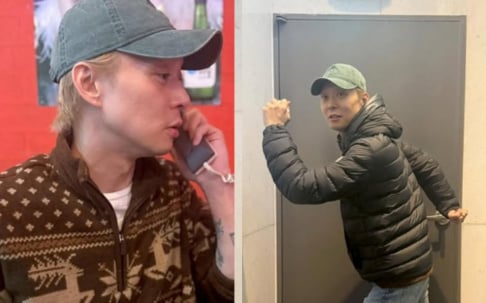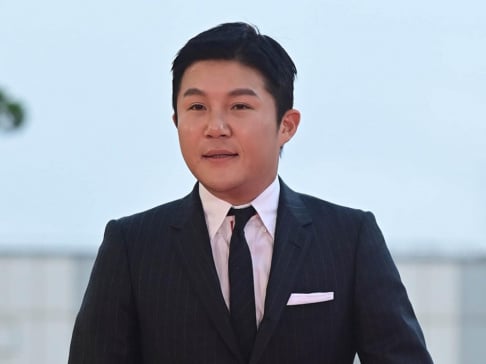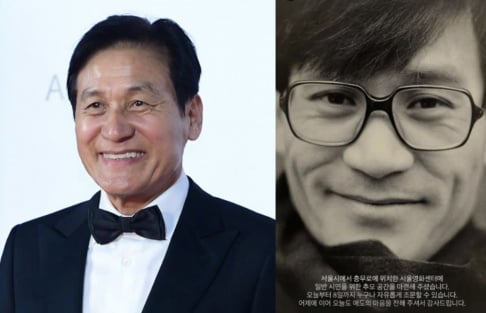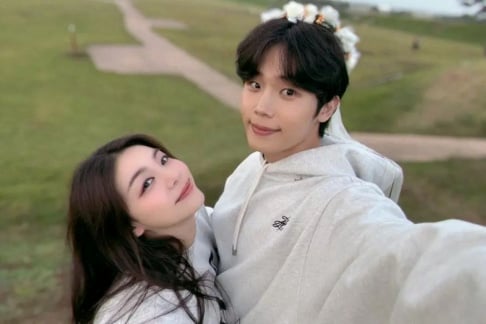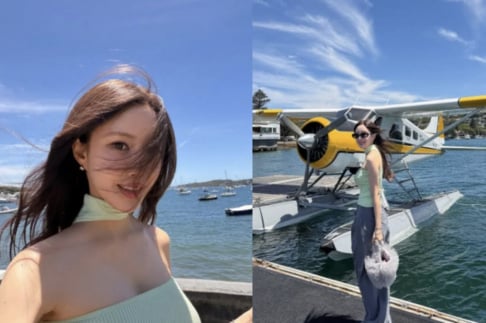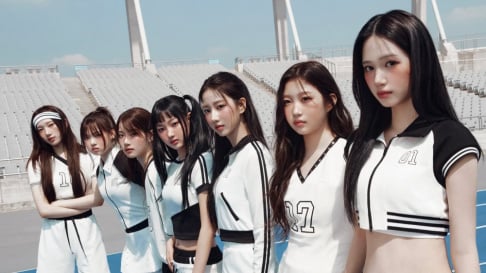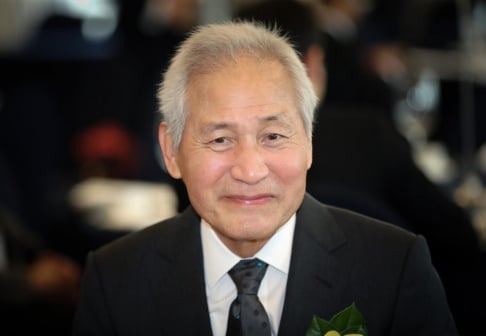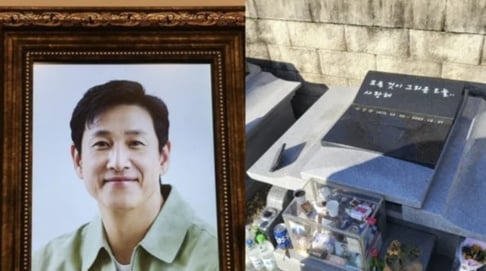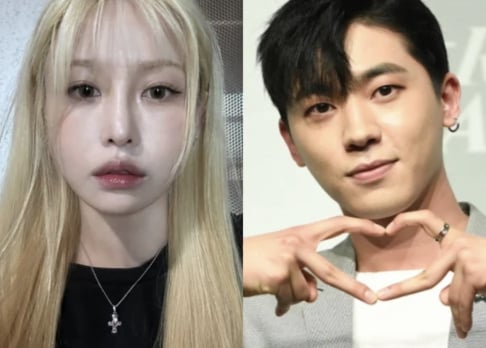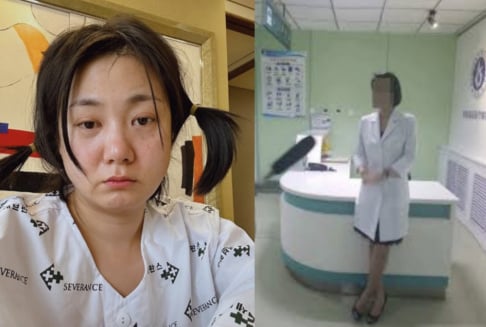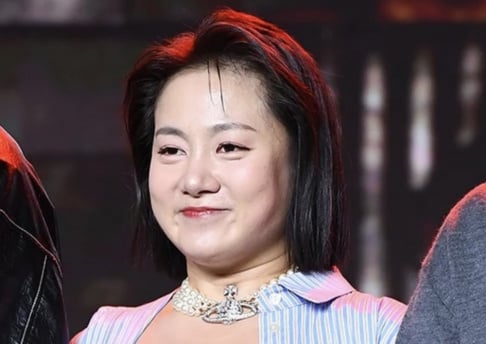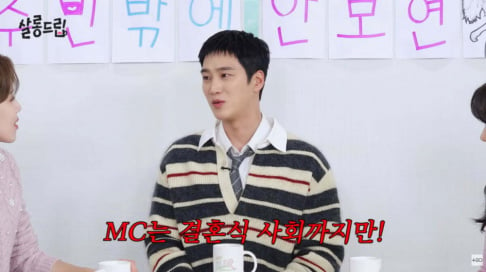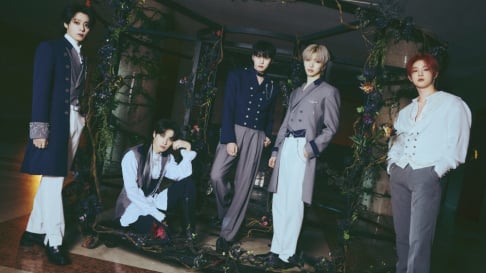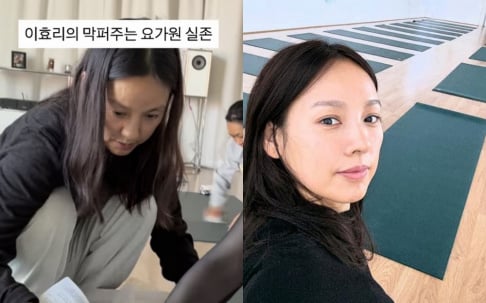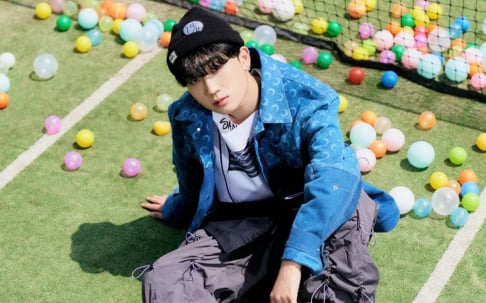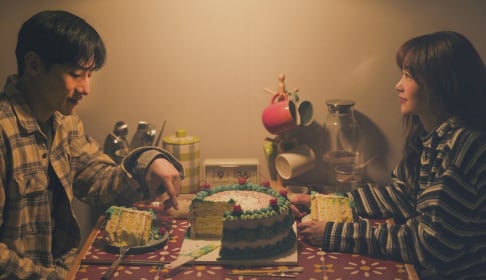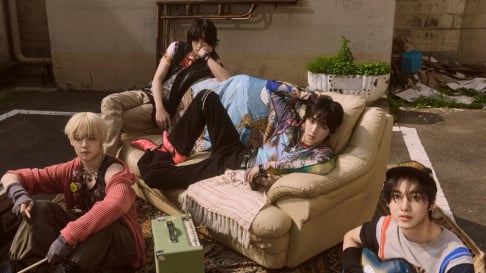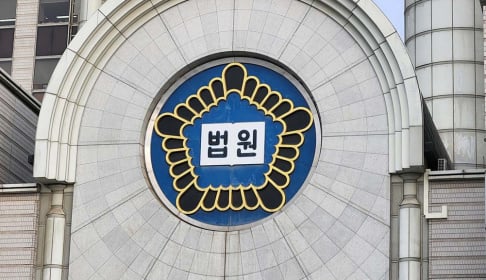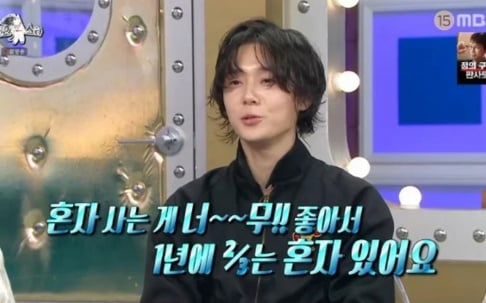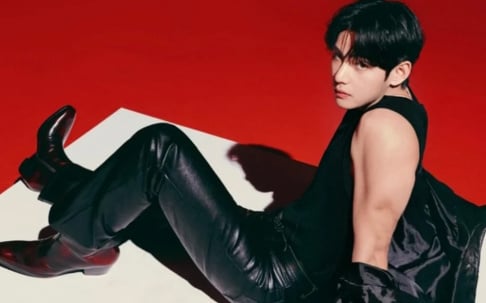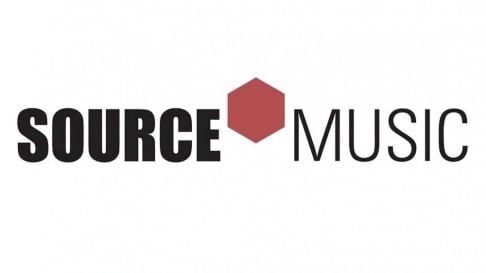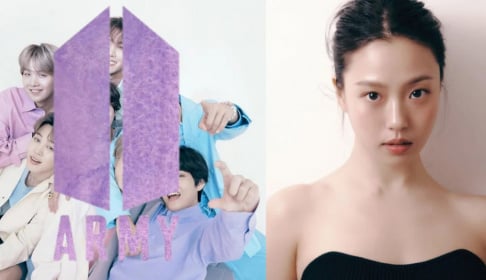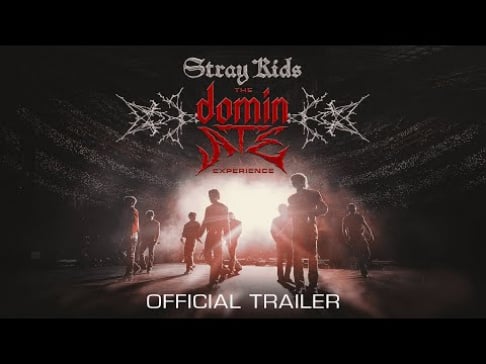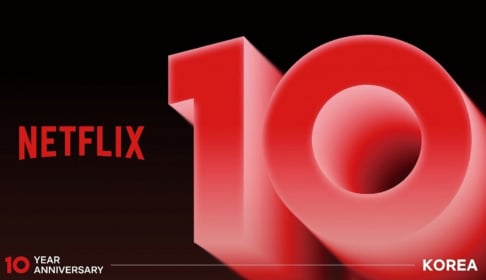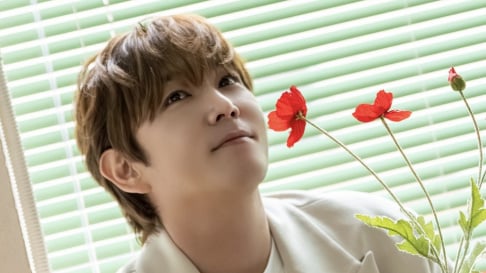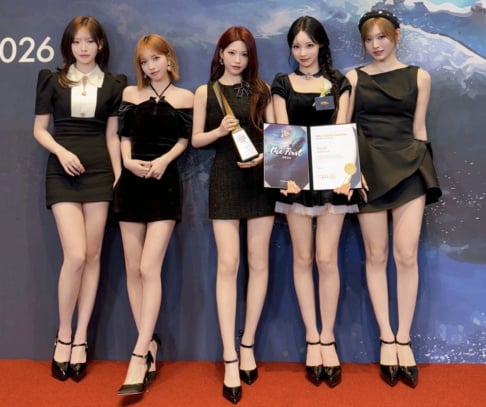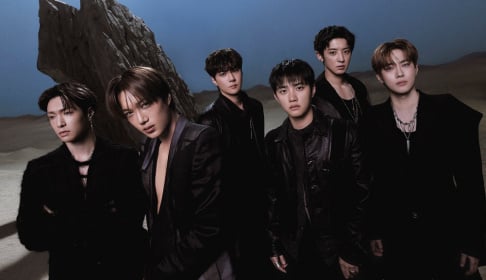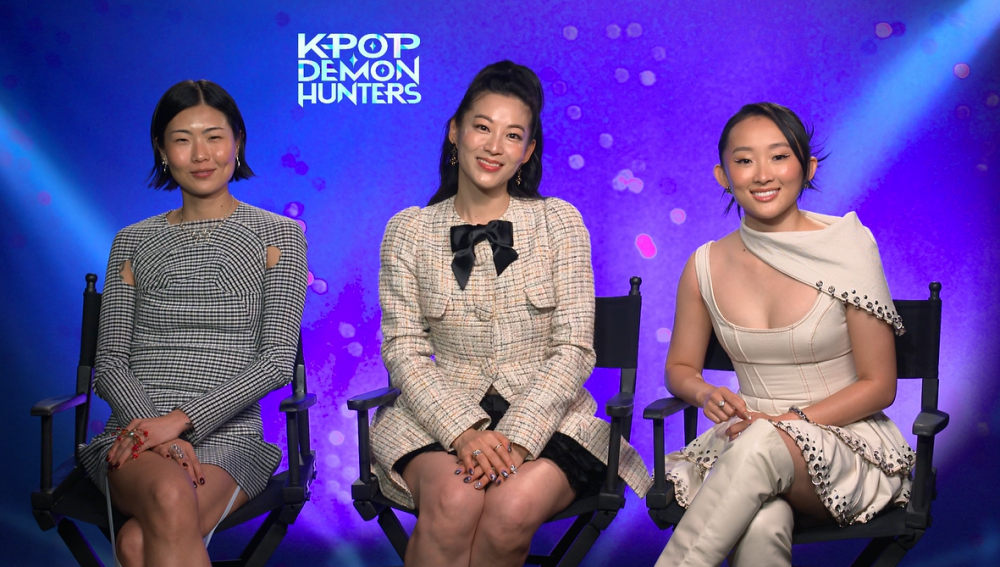
In Netflix's K-Pop Demon Hunters, the sparkle of K-pop and the spirit of Korean mythology collide in a dazzling animated adventure that’s as heartfelt as it is captivating. Directed by Maggie Kang (The Lego Ninjago Movie, Rise of the Guardians, Puss in Boots) and Chris Appelhans (Wish Dragon, Coraline, City of Ember), this feature from Sony Pictures Animation follows three pop star idols, Rumi, Mira, and Zoey, who moonlight as demon slayers, navigating fame, friendship, and some unsightly demonic foes. With a star-powered voice cast, exciting soundtrack, and eye-popping visual animation, K-Pop Demon Hunters isn’t just a fun film; it’s a cultural milestone.
Interview
“It’s such an honor to be a part of a special project like this,” says Arden Cho (Teen Wolf, Avatar: The Last Airbender), who voices Rumi. “This is really the first big Korean-centered animated movie, where all the leads are Korean. Obviously, we all love K-pop, and I mean—I was going to say we love slaying demons, but that’s not something that happens often!” she laughs. “The food, the city shots—you almost feel like you’re in Seoul. It’s really fun.”
The film’s world is as dynamic as its heroines. Set in a vibrant version of Seoul where ancient demons lurk beneath the bustling streets and neon lights, 'K-Pop Demon Hunters' uses its fantasy premise to explore themes of identity, pressure, and community. But it’s the emotional honesty of its characters that stands out. “The directors wanted to show women who are both powerful and imperfect,” says May Hong (Hacks), who plays the group's edgy, tough cookie, Mira. “It really is a full expression—it’s my first voiceover role, and it was cathartic to just scream. I was even snacking during the food scenes! It feels good to be able to yell and not think about my body—it kind of disappears.”
Cho agrees. “I feel like Rumi is way cooler than me—but I love that I could be goofy and silly, and a bit of myself was in there too. Maggie and Chris were so supportive. Sometimes I’d say something weird off-script, and they’d say, ‘Do it like that!’ So even though Rumi is cool, she’s also a little dorky in the best way.”
For Ji-young Yoo (Until Dawn), who voices the chaotic and hyperactive Zoey, the role offered a return to comedy after a string of dramatic parts. “A lot of my film and TV roles have been deeply serious, so it was nice to come back to my comedy roots,” she says. “Zoey is probably the closest to myself that I’ve played. She’s a lot more anxious and high-energy than I am, but essence-wise, we’re pretty similar."
That relatability is one of the film’s biggest strengths. Though the trio battles demons with glowing weapons and stage-ready choreography, they’re also deeply human, flawed, goofy, and full of heart. In the recording booth, that energy came to life in unexpected ways. Cho recalls, “I like all the yelling stuff! You never get to be ridiculous on camera, so this was very freeing and fun. I’d leave the booth exhausted in the best way.” For Hong, the physicality of the voice work offered a new kind of thrill: “In a soundproof studio, screaming feels so big—it’s a really cool experience. A true void.” Yoo agrees, describing the process as both playful and personal: “I got to ad-lib a lot! They let me say all sorts of random stuff, and I think some of it ended up in the movie.”
Of course, no K-pop-centered film is complete without the most essential ingredient: music! The soundtrack is a standout, featuring original songs and performances from TWICE, Audrey Nuna, Kevin Woo, and even Broadway legend Lea Salonga. “I love "Soda Pop" (by the Saja Boys)—it’s such a vibe,” says Cho. “And 'Golden' is such a powerful song. It’s that hero moment where we really get to shine. I feel so proud to be Korean American.” Hong agrees: "'Golden' is also my favorite. It’s the anthem of us. I watched the movie so many times and it still gets stuck in my head.” Yoo points to one pivotal duet: “There’s a song in the middle that, without spoiling it, feels very Camp Rock meets classic Disney.”
Directors Kang and Appelhans have cited BTS’s pandemic-era virtual concerts as part of what inspired the emotional heart of the film, and their dedication shows. “They really put in a lot of research, and it’s really beautiful,” recalls Yoo. “They’re coming to it with a lot of respect, which I think is really lovely to see.” Cho adds, “They built this world that’s so magical and big in the way that K-pop deserves to be. And for Rumi, she goes through so much in her friendships and her identity. I think that’s something everyone watching will relate to—we’re all on our own journeys, trying to figure out who we are and if who we are is okay.”
As the cast settles into a lighter moment, the conversation turns to what solo singles their characters might release - each one a playful extension of the personas they’ve brought to life. “Rumi’s would be called 'This Is Me,' Cho says proudly. “It’s her hero song.” Yoo laughs, agreeing with a passionate, "Camp Rock! Let's go!" “Maybe mine’s 'I’m Gonna,'" laughs Hong. “Or 'I Will.'” Yoo grins. “Zoey’s very cute, but her rap style is hardcore. Maybe something like Nayeon’s 'Pop' or Jennie’s 'Like Jennie.' She’d have a 'Mantra'-type track.”
Ultimately, 'K-Pop Demon Hunters' is more than an action-packed animated feature; it’s a heartfelt celebration of identity, friendship, and the healing power of community and shared interests. It's a film that uplifts, featuring an all-Korean lead cast, a high-energy soundtrack, and a story rooted in both mythology and modernity. And thanks to its trio of fearless (and funny) stars, it delivers something rare: a film that’s as powerful as it is personal, made for fans who see themselves in every lyric, laugh, and battle cry.
'K-Pop Demon Hunters' release date on Netflix
Catch K-Pop Demon Hunters when it drops worldwide on Netflix, June 20, 2025.
 SHARE
SHARE
